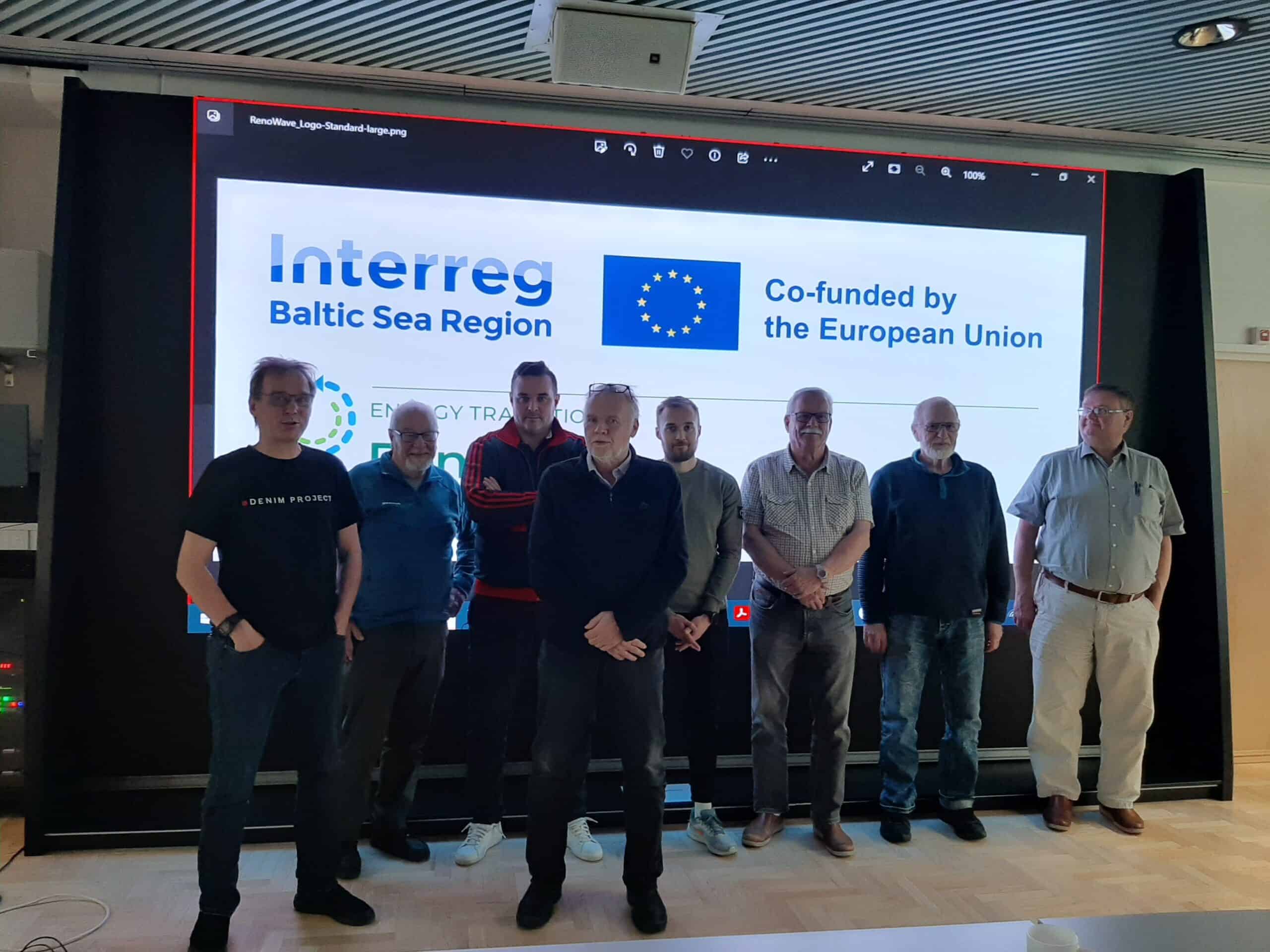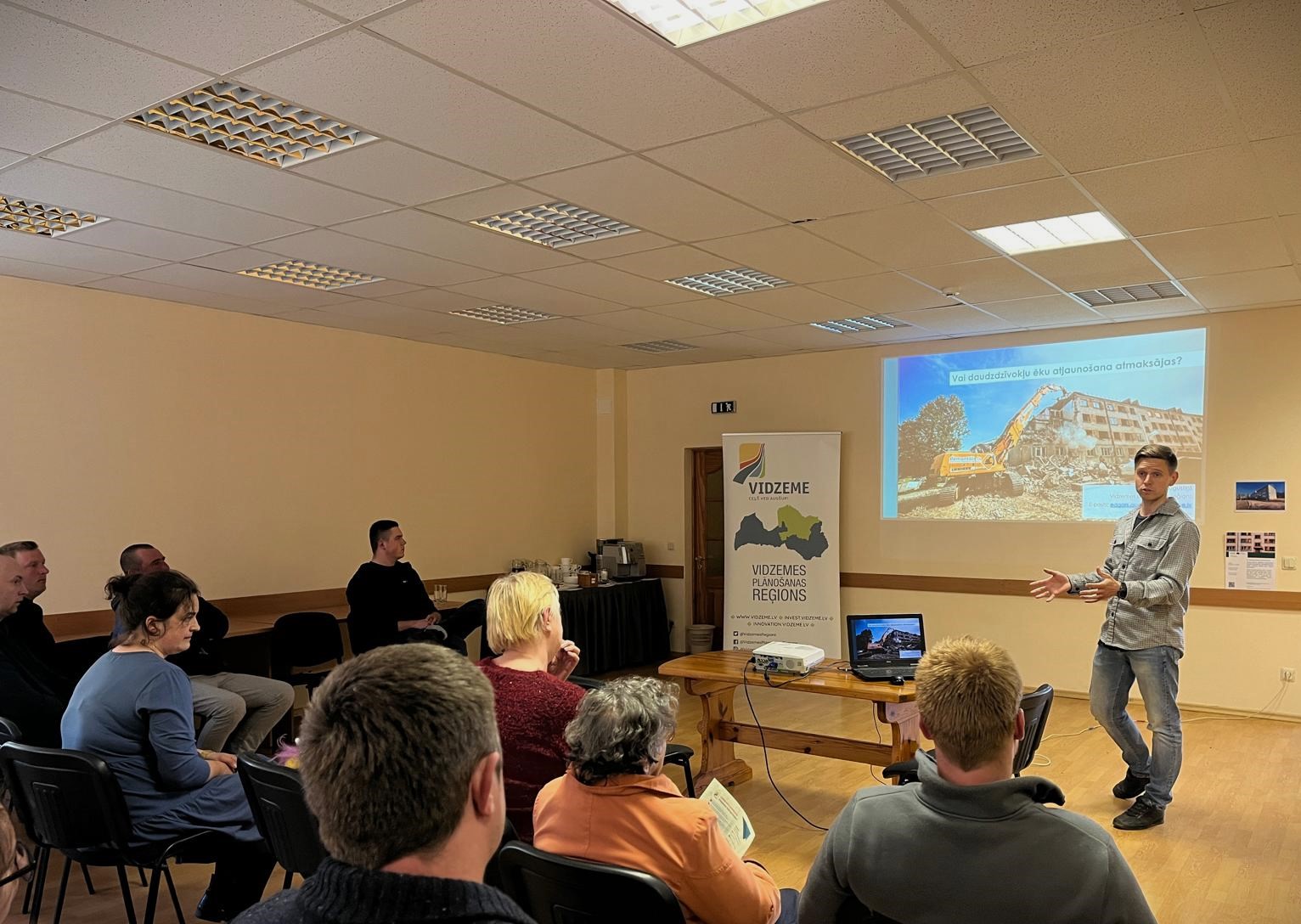Deciding to renovate a building can be difficult for several reasons. Firstly, renovation often involves significant financial investment, and individuals may hesitate to commit to such a substantial expense without certainty about the return on investment or potential future costs. Additionally, renovation projects can disrupt residents’ daily lives, causing inconvenience and uncertainty about the duration and extent of disruptions. Moreover, there may be differing opinions among residents and board members regarding the scope and priorities of the renovation, leading to challenges in reaching a consensus. Furthermore, uncertainty about the effectiveness of the proposed renovations in addressing existing issues or enhancing the building’s value can also contribute to decision-making hesitancy. Overall, the multifaceted considerations involved in building renovation can make the decision-making process complex and challenging.
Simon Hunkin, who works at Interreg Europe Policy Learning Platform, says: “Multi-occupancy buildings face a particular challenge in energy-efficient renovation, requiring multiple owners to jointly agree to have work done, as well as requiring them to find finance. This practice has a number of replicable and interesting features: the provision of energy advice; the group itself, which can build a common community and encourage action – people tend to act when they see others doing so; the provision of energy audits, which help to identify the specific actions needed; and the group procurement which brings down costs. Many regions face the challenge of supporting apartment building renovations, and they can replicate different parts of the offer as required.”
Collaboration forum meetings with multi-apartment building residents, board chairmen, board members, and energy experts about renovation play a pivotal role in ensuring the success and effectiveness of the renovation process. One goal of the RenoWave project is to establish collaboration forum activities in seven partner countries. The Lappeenranta, Finland, collaboration forum is an example and model for others. Regional energy advisors of the City of Lappeenranta, Tanja Nyholm and Matti Pylkkö, established the collaboration forum in the region. According to them, practical issues regarding energy efficiency are discussed in the forum.
“The collaboration forum was established at the beginning of 2021, but the preparations started at the end of 2020 when we looked for participants. Most forum members are from Lappeenranta, but there are also a few active members from elsewhere in the South Karelia region. The basic idea of the collaboration forum is very simple. The aim is to facilitate cooperation between multifamily apartments and bring together the decision makers (i.e., board chairmen and board members) of home-owned multi-apartment buildings in the city, region, district, or neighborhood,” says Matti Pylkkö, the project engineer of the City in Lappeenranta.
The forum provides a platform for sharing information, engaging discussions, and exchanging good practices, experiences, and expertise among its members. The forum offers participants a comprehensive and fruitful platform for continuously enhancing the energy efficiency of their buildings. Having worked in the energy sector for almost 50 years, Jorma Grönlund describes the effectiveness of forums in Lappeenranta city: “I had noticed that housing associations usually faced similar challenges, which each solved alone. I thought the forum could help residents achieve healthy and comfortable living.”
Lappeenranta’s team has prepared guidelines for the other countries of the RenoWave project to start creating such a forum. The guideline document will soon be published on https://interreg-baltic.eu/project/renowave/ and available to other interested parties. The final version of the guide will also include the experiences of piloting joint procurements.
Since last year, several forum meetings have been successfully organized in Võru, Estonia since last year. “In the municipalities of Võru County, 64% of the buildings were built before 1980, and most of them need to be updated and made more energy efficient,” says Siim Meeliste, the Võru County Development Centre project manager.
Four forum meetings have already been held in Võru. In these meetings mainly participate residents of the multi-apartment buildings, board members of apartment associations, apartment building management companies, local municipality representatives and also private house owners. Discussed topics were about financing opportunities using grants, loans, and other funds. One of the topics of conversation was also about apartment cooperatives and how to make cooperatives viable and increase crisis preparedness (creating generator capacity for the heating unit, installing water taps in basements, recommendations for adapting the basement as a shelter, fire safety in the apartment building, subsidies, etc.)
“The lack of technical consultants was mentioned as a problem – especially in Võru County, where they are already too busy and unable to help new interested parties. It also became apparent that there was no support measure to help the multiapartment building associations carry out partial repairs, such as replacing a leaking roof,” explains Jaanus Mark, Võrumaa Development Center. The next forum meeting will be on June 4, which will focus on future directions of electric transport and practice setting up chargers at the apartment building.
Also, in the Vidzeme region, Latvia, three forum meetings have been held this spring with residents of various apartment buildings. The residents of the apartment buildings, in conversations and visually on the pictures of the buildings, pointed out the places that urgently need renovation work – water accumulates in the basement, the roof leaks in the attic, indoor air temperatures fluctuate in the apartments during the winter, and mold forms. Energy efficiency expert Edgars Augustiņš explained why mold forms in buildings: “Mold is primarily caused by the lack of ventilation. Every day indoors, we cook, dry wet clothes, and moisture has nowhere to stay. The coldest corners of the building have favorable conditions for dew point formation. If the apartments’ temperatures are low, the residents often do not want to ventilate the rooms, and there is poor air exchange. In addition, it is possible that the existing chimneys, intended for ventilation, are used as flues for individual heating systems. Low temperature and high humidity are good breeding grounds for mold, which can also significantly impact respiratory and heart diseases, so adequate ventilation must be provided during the renovation of the building.”
At each forum meeting in the Vidzeme region, the residents of the particular building discuss the topics that are important for this house right now. For example, for one building, it is the insulation of balconies; for another, the replacement of cast iron radiators; and for another, the drainage of water from the foundations of the building. Understanding the existing problems and questions of interest, additional experts will be brought to the following meetings to help apply the best solutions to the existing issues.
Bringing together energy efficiency experts with multi-apartment building residents in forum meetings is crucial for several reasons. Energy efficiency experts can educate residents about the benefits of energy-saving measures, such as lower utility bills, improved comfort, and reduced environmental impact. Besides that, by understanding residents’ needs and concerns, energy efficiency experts can tailor their recommendations to fit the unique characteristics of the building and its occupants, ensuring higher acceptance and satisfaction. This approach is used by the RenoWave team to plan and organize such forums in several countries in the Baltic Sea region.





